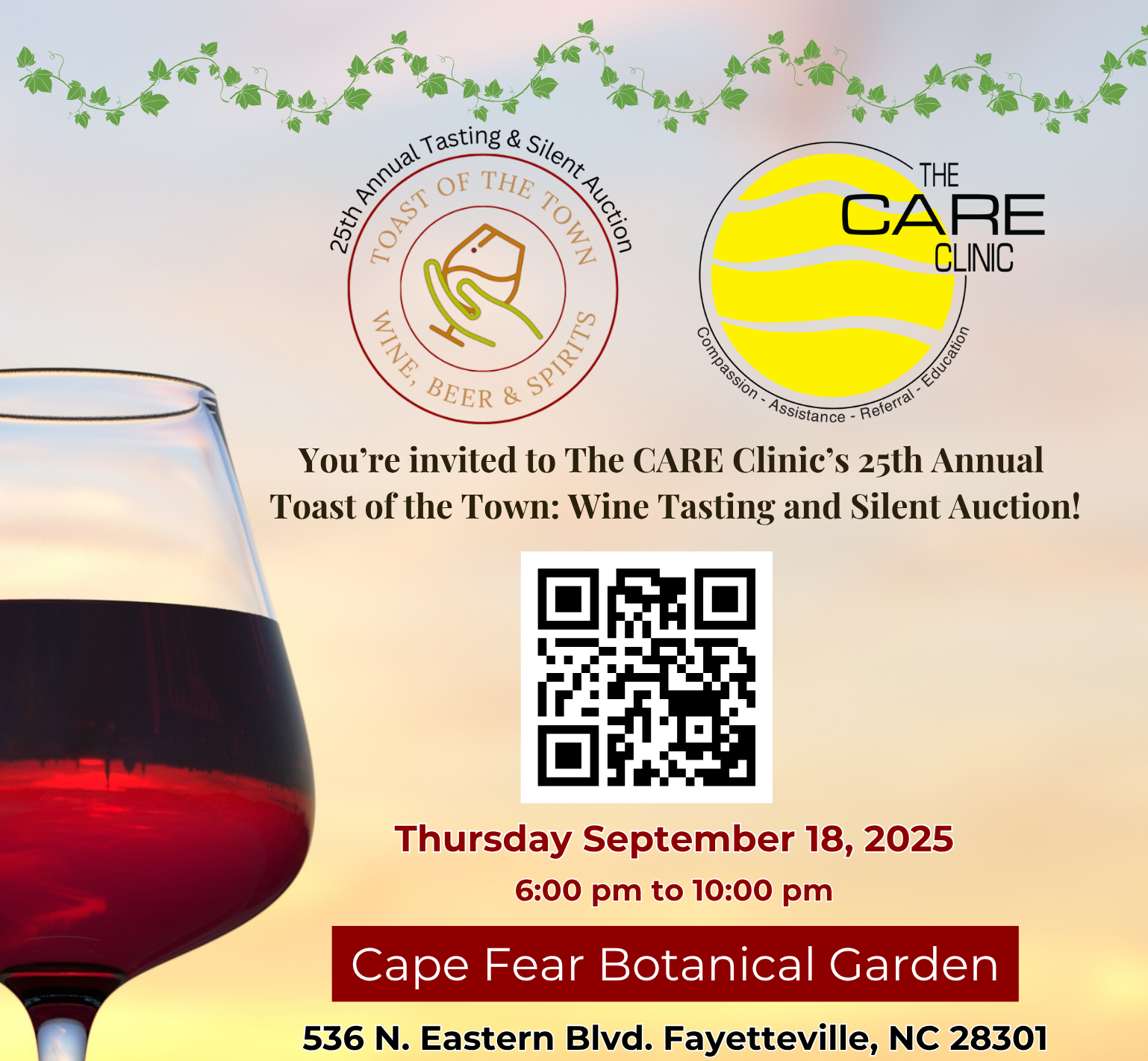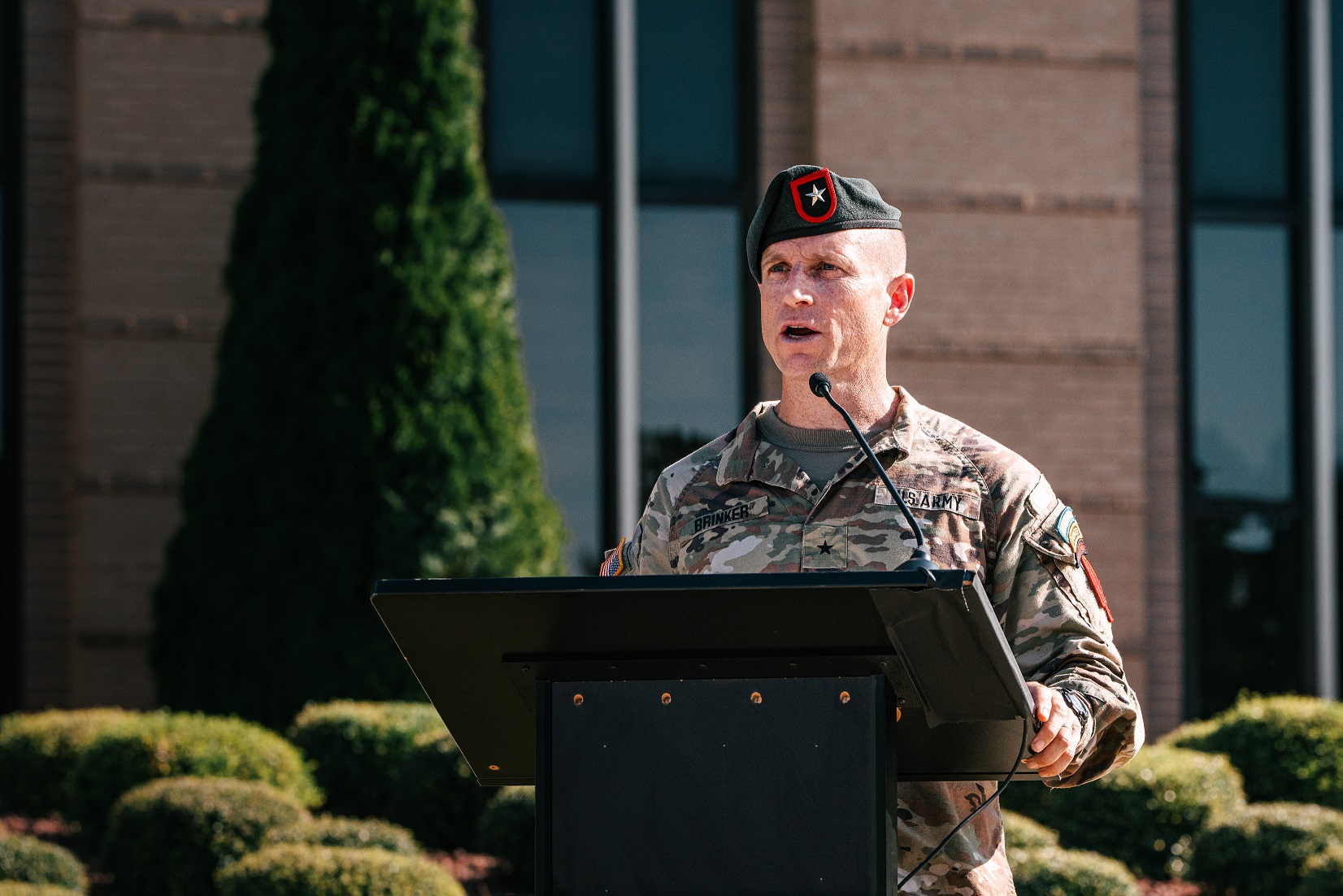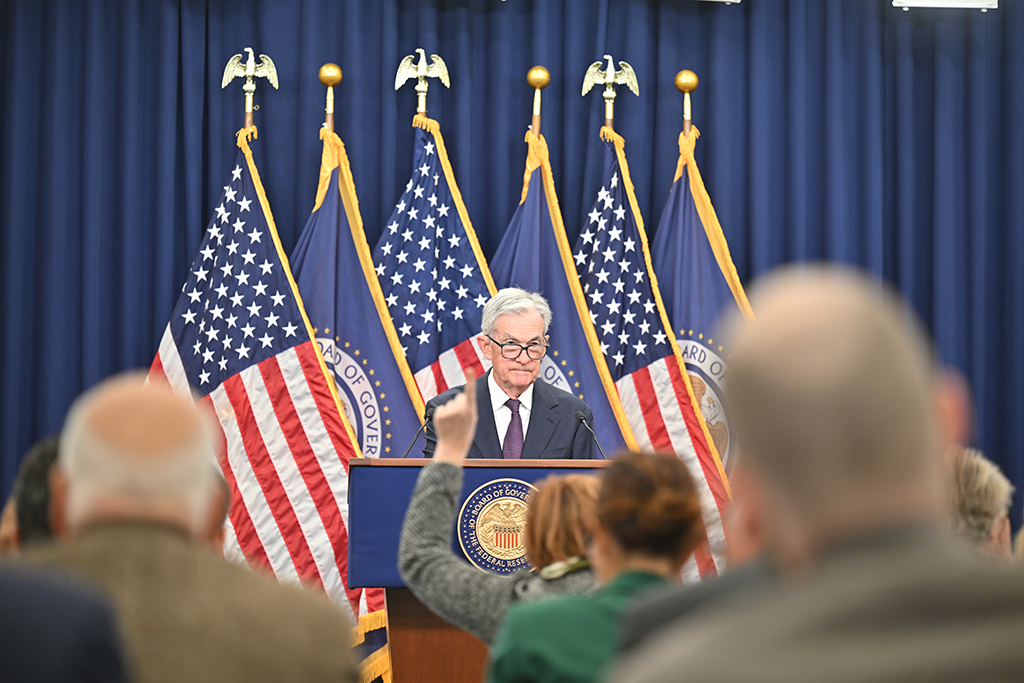
The economics of providing healthcare to uninsured adults in Cumberland County present a stark challenge: significant operational costs with zero government funding and a patient population that, by definition, cannot pay for services.
For The CARE Clinic, a 32-year-old nonprofit addressing this gap, financial sustainability depends entirely on private support—making the 25th annual Toast of the Town fundraising event on Sept. 18 a crucial component of the organization’s annual budget.
This year, the clinic’s flagship fundraiser features a local wine and spirits tasting event at Cape Fear Botanical Garden. The organization’s most significant annual revenue opportunity, the event combines ticket sales with silent auction proceeds.
The clinic serves a specific niche in the regional healthcare landscape— uninsured adults who earn too much to qualify for Medicaid but cannot afford private insurance or direct-pay medical services. This population often includes small business owners, independent contractors and employees of companies that don’t offer health benefits.
Economic data suggests this demographic represents a substantial portion of Cumberland County residents. The clinic’s patient load indicates ongoing demand for safety-net services, particularly as healthcare costs continue outpacing wage growth in many sectors.
Nicole Ryan, who leads development and marketing efforts for the clinic, describes the donor funding model as both the organization’s greatest strength and its primary vulnerability. The all-volunteer clinical staff keeps personnel costs minimal, but facility expenses, medical supplies and operational overhead require consistent revenue streams that traditional healthcare reimbursement models don’t provide.
“The reality is straightforward— without events like this, we simply couldn’t maintain operations,” Ryan said. “Every aspect of what we do depends on community support because payments from our patient population can't sustain the organization financially.”
Ryan’s approach to development reflects broader trends in nonprofit healthcare funding, where organizations increasingly rely on sophisticated fundraising operations rather than traditional grant-based models. Her background includes work with national nonprofits, bringing professional development practices to an organization that historically operated with more informal fundraising approaches.
“We’re competing for philanthropic dollars with every other worthy cause in the region,” Ryan noted. “That means we need to demonstrate clear impact and build genuine relationships with supporters, not just ask for money once a year. Sustainable operations require diversified funding that includes individual donors and local business partnerships.”
Ryan emphasizes that the organization’s volunteer model creates unique value propositions for both donors and the healthcare professionals who staff evening clinics. Licensed volunteers gain community service opportunities while maintaining their regular practices, and donors can see direct connections between contributions and patient care.
“Our operational efficiency is actually quite impressive when you analyze the numbers,” Ryan explained. “The percentage of every dollar that goes directly to patient services is higher than most healthcare organizations because we don't have typical personnel costs.”
The Sept. 18 Toast of the Town event invites participation from local business leaders and community members who can contribute both financially and through professional networks. Ryan’s strategy involves building long-term relationships rather than focusing solely on immediate donations, recognizing that sustainable nonprofit healthcare requires consistent support from multiple sources.
Corporate sponsorships represent a growing component of the clinic’s revenue strategy. Local businesses gain community visibility while supporting workforce health—particularly relevant given that many employees of area companies likely fall into the clinic’s target demographic.
The organization’s volunteer committees handle various operational aspects, from event planning to clinical oversight, creating multiple entry points for community involvement. This structure helps build stakeholder investment while distributing workload across committed volunteers.
For the regional business community, The CARE Clinic represents both a community asset and a potential workforce benefit. Employees with access to basic healthcare services are more likely to address health issues before they become serious problems that affect productivity.
The clinic’s evening hours accommodate working patients who cannot take time off for medical appointments, addressing a practical barrier that often prevents low-income adults from accessing healthcare. This scheduling approach recognizes the economic realities facing both patients and volunteer healthcare providers.
Ryan’s marketing strategy emphasizes measurable outcomes and community impact rather than emotional appeals alone. The approach reflects professional nonprofit management practices designed to build sustainable support from business-oriented donors who want to see concrete results from their investments.
The September fundraiser serves as both revenue generator and community awareness campaign, introducing new potential supporters to the clinic’s mission while maintaining relationships with existing donors. The event’s success will directly impact the organization’s capacity to serve patients throughout the coming year.
“This isn't charity in the traditional sense,” Ryan concluded. “It’s a community investment in healthcare infrastructure that benefits everyone when people can address health issues before they become emergencies that strain the entire system.”
Toast of the Town is scheduled for Sept. 18, 6-10 p.m. at Cape Fear Botanical Garden. Tickets are $100. Information about sponsorship opportunities and volunteer positions is available through The CARE Clinic. Learn more at www. thecareclinic.org/event/25th-annual-toast-of-the-town or buy tickets directly at: https://onecau.se/tot2025

U.S. Army Special Operations Command Acting Commanding General, Brig. Gen. Kirk Brinker, gives a speech as USASOC bids farewell to Lt. Gen. Jonathan Braga after serving four years as its commanding general outside the USASOC Headquarters at Fort Brag

Graphic provided by Fayetteville Dogwood FestivalGood music, food and fall themed fun for all ages will swirl into Festival Park with the falling leaves this season. On Oct. 18 and 19, The Dogwood Festival will be returning for the fall. This free fe

Chair Powell answers reporters' questions at the FOMC press conference on Sept. 17, 2025. Photo provided by the Federal Reserve.On Wednesday, Sept. 17, the Federal Open Market Committee (FOMC) announced that it had decided to lower the target r